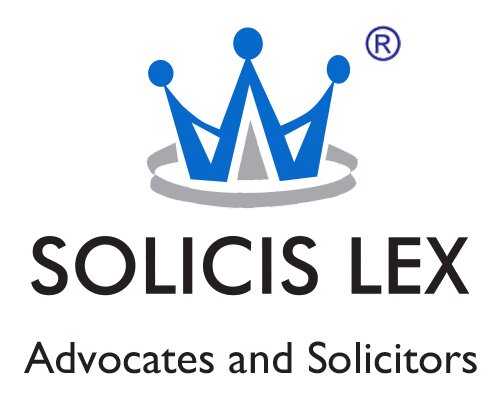Best Creditor Lawyers in India
Share your needs with us, get contacted by law firms.
Free. Takes 2 min.
Or refine your search by selecting a city:
List of the best lawyers in India
About Creditor Law in India
Creditor law in India involves regulations and legal provisions that address the rights and obligations of creditors and debtors. Creditors seek to ensure the recovery of debts while adhering to legal frameworks that protect both parties involved in a financial transaction. This branch of law encompasses debt recovery processes, bankruptcy laws, secured transactions, and contractual obligations. The Insolvency and Bankruptcy Code (IBC) of 2016 and the Recovery of Debts Due to Banks and Financial Institutions Act (RDDBFI Act) are among the pivotal legislations governing creditor rights in India.
Why You May Need a Lawyer
There are numerous scenarios where an individual or an organization may require legal assistance in creditor matters:
- Debt Recovery: Navigating the complex process of legally recovering dues from debtors, especially if they are non-compliant.
- Contractual Disputes: Addressing disagreements over payment terms or breach of contract involving credit agreement complexities.
- Insolvency Proceedings: Seeking guidance on filing or defending insolvency suits as per the provisions of the IBC.
- Legal Representation: Needing representation in courts, arbitration, or negotiations concerning creditor-debtor arrangements.
- Securing Assets: Advising on legal measures to secure debts via collateral or other secured transactions.
Local Laws Overview
India’s legal framework for creditors involves several key laws:
- Insolvency and Bankruptcy Code, 2016: Governs the insolvency resolution processes for individuals and corporates, simplifying debt recovery and enhancing creditor rights.
- RDDBFI Act, 1993: Provides for the establishment of Debt Recovery Tribunals and Debt Recovery Appellate Tribunals for expeditious adjudication and recovery of debts due to banks and financial institutions.
- Securitisation and Reconstruction of Financial Assets and Enforcement of Security Interest (SARFAESI) Act, 2002: Allows banks and financial institutions to auction residential or commercial properties to recover loans.
- Contract Act, 1872: Governs the contractual obligations and rights between creditors and debtors, providing legal grounding for credit agreements.
Frequently Asked Questions
What rights do creditors have in India?
Creditors in India have the right to recover debts, initiate insolvency proceedings, enforce security interests, and contest claims under the IBC and other relevant laws.
What is the role of Debt Recovery Tribunals?
Debt Recovery Tribunals adjudicate on matters concerning recovery of debts due to banks and financial institutions, providing a quicker resolution compared to regular courts.
How does the SARFAESI Act benefit creditors?
The SARFAESI Act allows financial institutions to enforce security interests without court intervention, thus expediting asset recovery processes.
What is the Insolvency and Bankruptcy Code?
The IBC is a comprehensive law to consolidate insolvency laws in India, focusing on time-bound resolution of insolvency and bankruptcy cases.
Can creditors seize assets without court orders?
Under the SARFAESI Act, creditors can enforce security interests over secured assets without court orders, subject to specific conditions and procedures.
How long does debt recovery take in India?
The duration varies depending on the complexities involved, but legislations like the IBC aim for resolution within 180-270 days.
What is a secured creditor?
A secured creditor holds a legal interest or right over certain assets of the debtor as security for a debt owed.
What happens if a debtor files for insolvency?
Upon filing for insolvency, an insolvency professional takes over the management of the debtor’s affairs, and a resolution plan is devised as per IBC procedures.
Can a creditor initiate bankruptcy proceedings?
Yes, creditors can initiate bankruptcy proceedings against a debtor under the IBC if the debtor defaults on a payment above a certain threshold.
Are there any filing fees for legal actions as a creditor?
Yes, creditors may need to pay filing fees for initiating legal actions in courts, tribunals, or DRTs, which vary based on the amount of debt and forum of dispute.
Additional Resources
For further assistance, the following resources can be useful:
- Ministry of Corporate Affairs - For information on the IBC and insolvency processes.
- Reserve Bank of India - Guidelines related to banking regulations and creditor-debtor relationships.
- Law Society or Bar Associations - Access to legal practitioners specializing in creditor law.
- Debt Recovery Tribunals - Specifics on resolving disputes under RDDBFI Act.
- Local Legal Aid Clinics - Offer assistance or provide pro bono legal services.
Next Steps
If you require legal assistance in creditor matters, consider the following steps:
- Consult with a legal expert specialized in creditor law to evaluate your situation and provide tailored advice.
- Gather all relevant documents and evidence related to the debt or dispute for your legal consultation.
- Consider alternative dispute resolution methods like arbitration or mediation if feasible.
- Research the possibility of leveraging local laws and resources to facilitate resolution.
- Stay informed about changes in creditor laws and updates from legal authorities.
Lawzana helps you find the best lawyers and law firms in India through a curated and pre-screened list of qualified legal professionals. Our platform offers rankings and detailed profiles of attorneys and law firms, allowing you to compare based on practice areas, including Creditor, experience, and client feedback.
Each profile includes a description of the firm's areas of practice, client reviews, team members and partners, year of establishment, spoken languages, office locations, contact information, social media presence, and any published articles or resources. Most firms on our platform speak English and are experienced in both local and international legal matters.
Get a quote from top-rated law firms in India — quickly, securely, and without unnecessary hassle.
Disclaimer:
The information provided on this page is for general informational purposes only and does not constitute legal advice. While we strive to ensure the accuracy and relevance of the content, legal information may change over time, and interpretations of the law can vary. You should always consult with a qualified legal professional for advice specific to your situation.
We disclaim all liability for actions taken or not taken based on the content of this page. If you believe any information is incorrect or outdated, please contact us, and we will review and update it where appropriate.
Browse creditor law firms by city in India
Refine your search by selecting a city.















